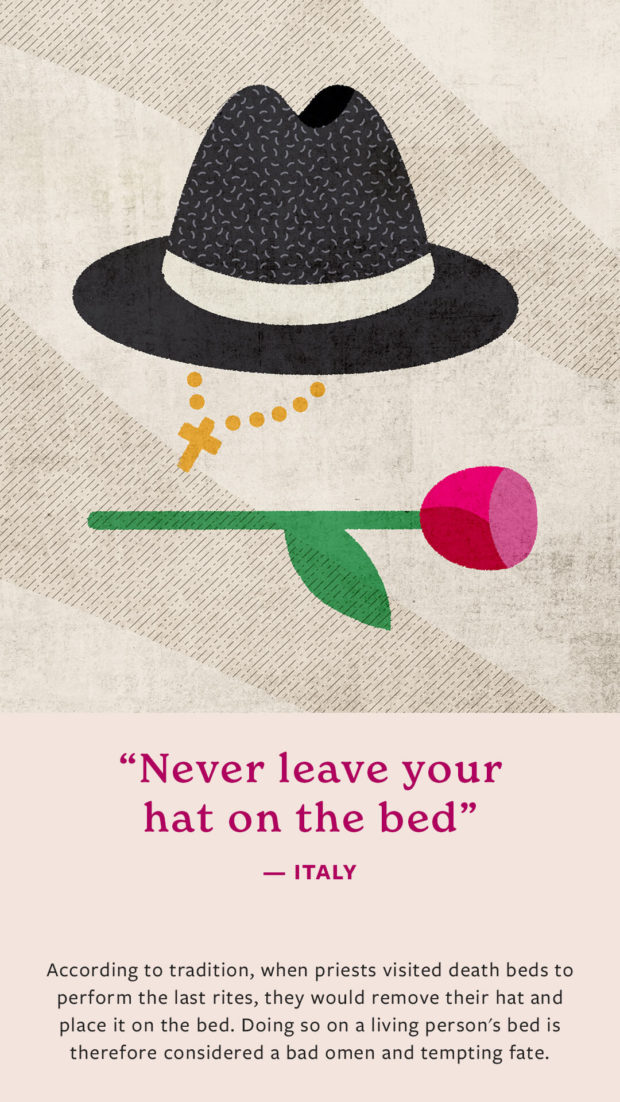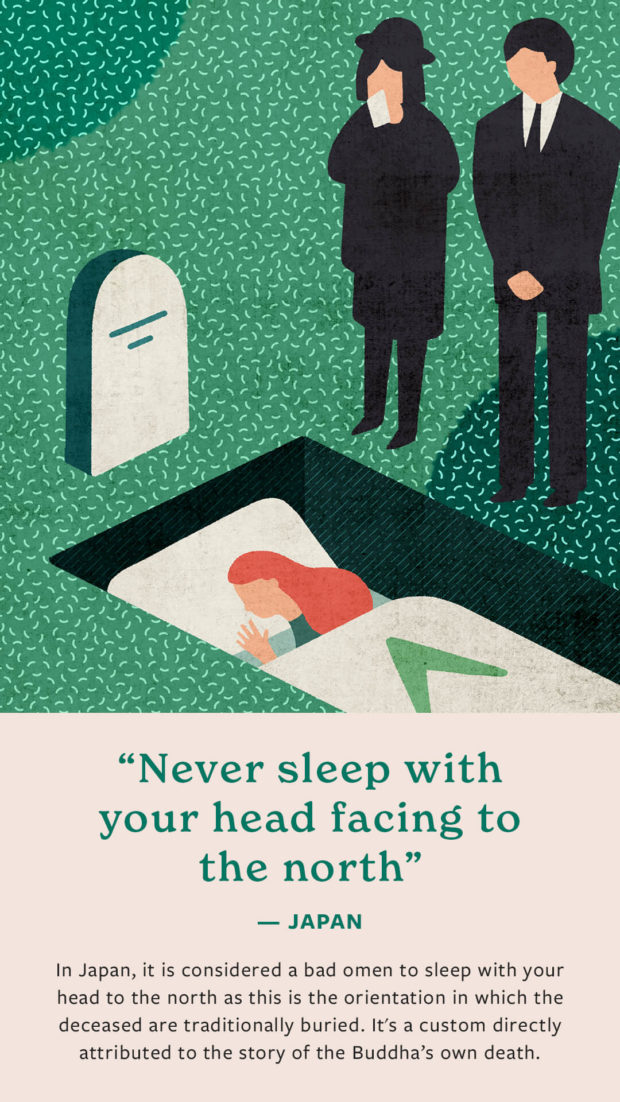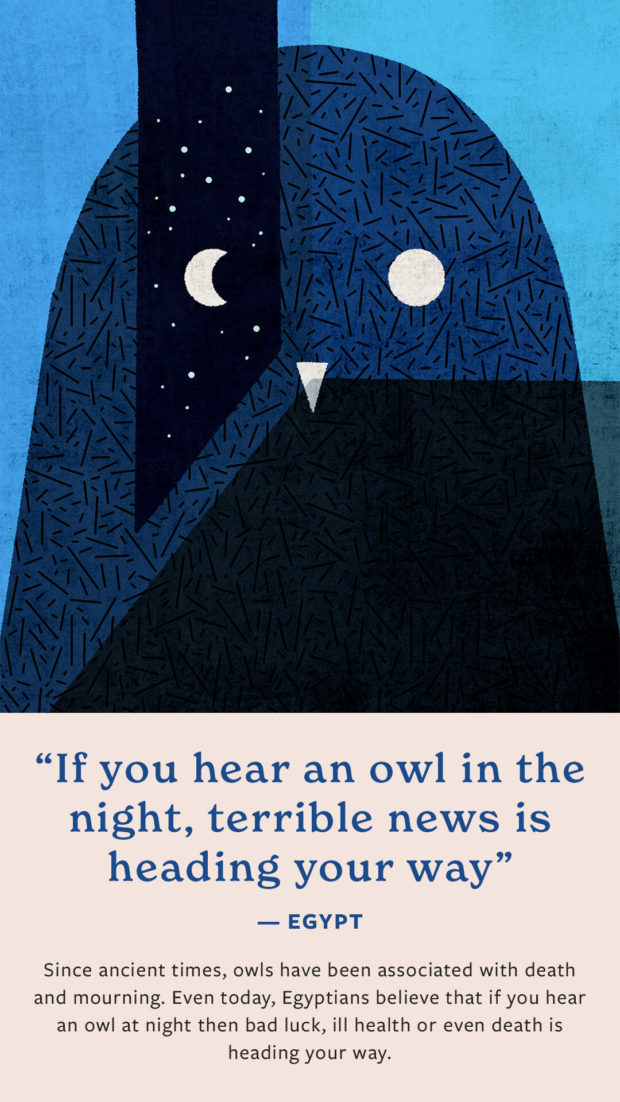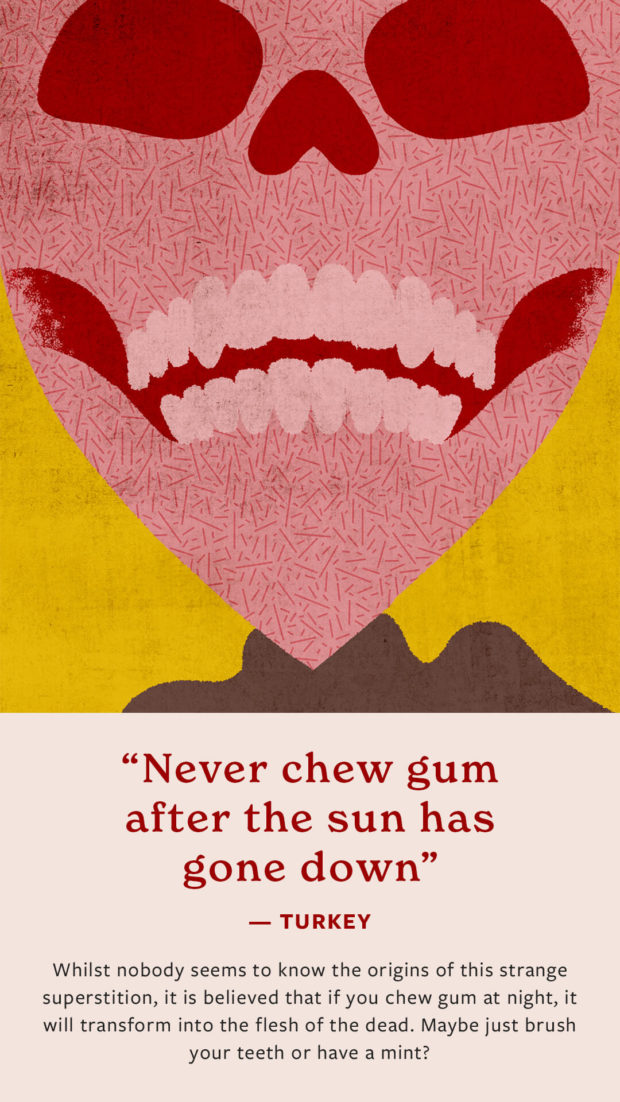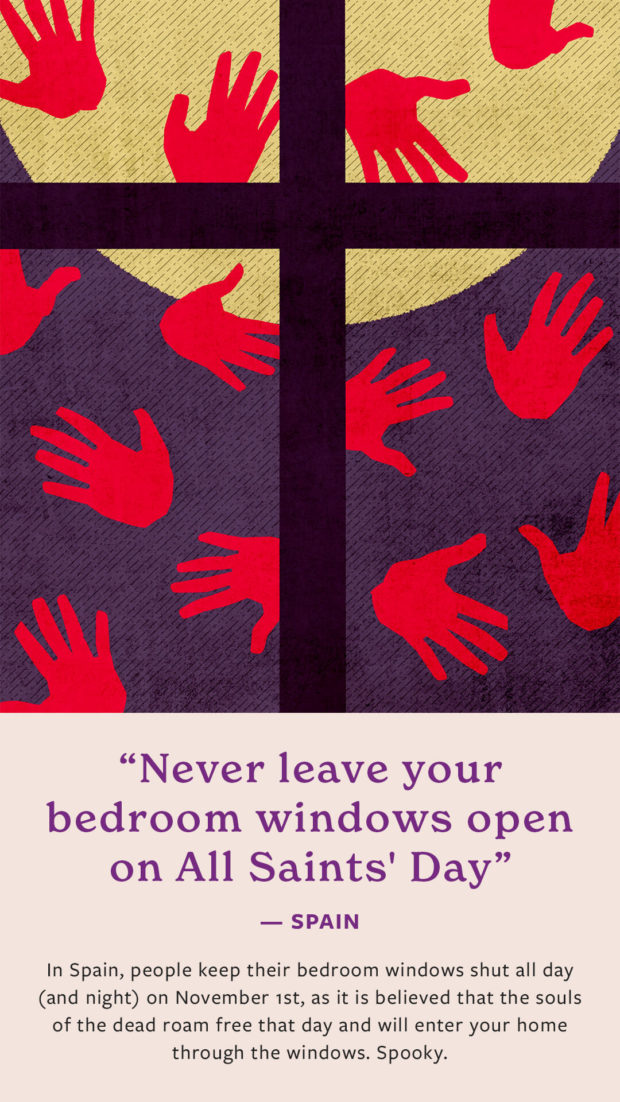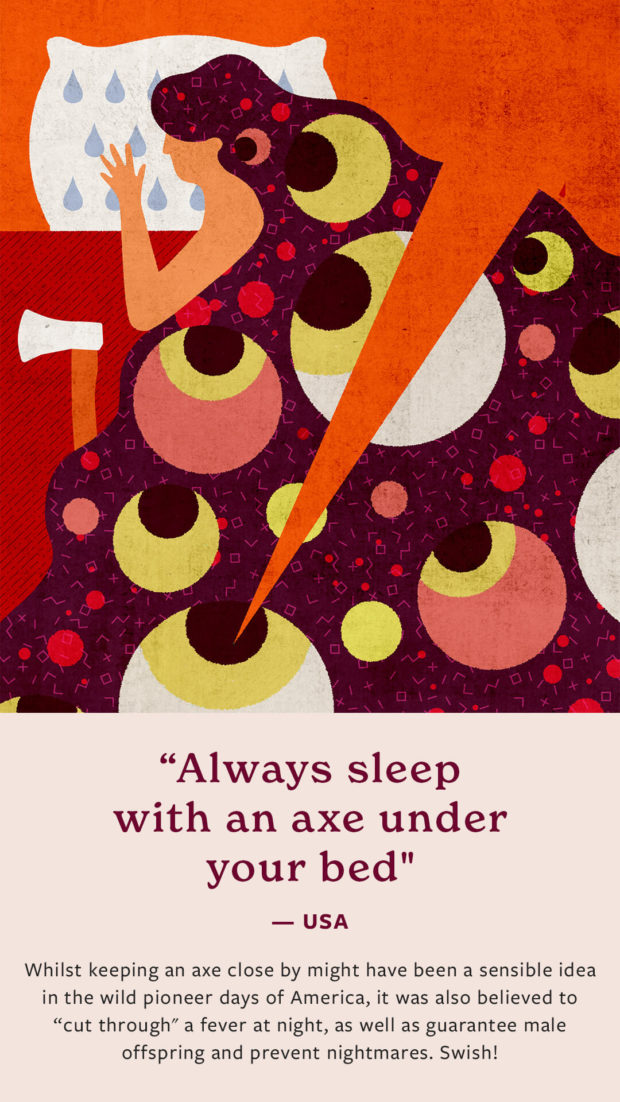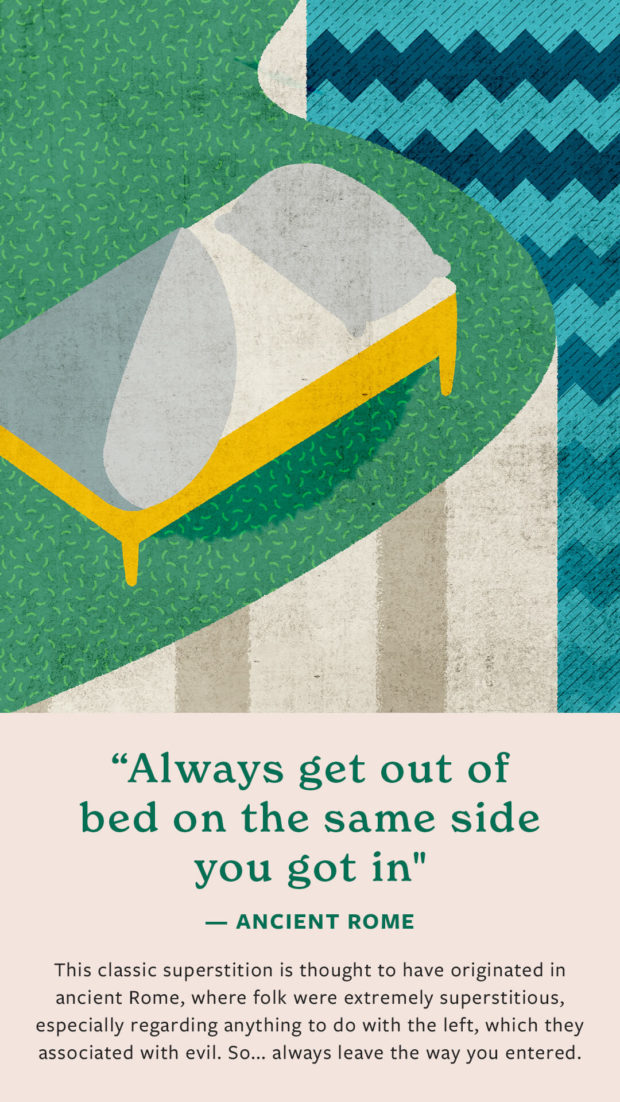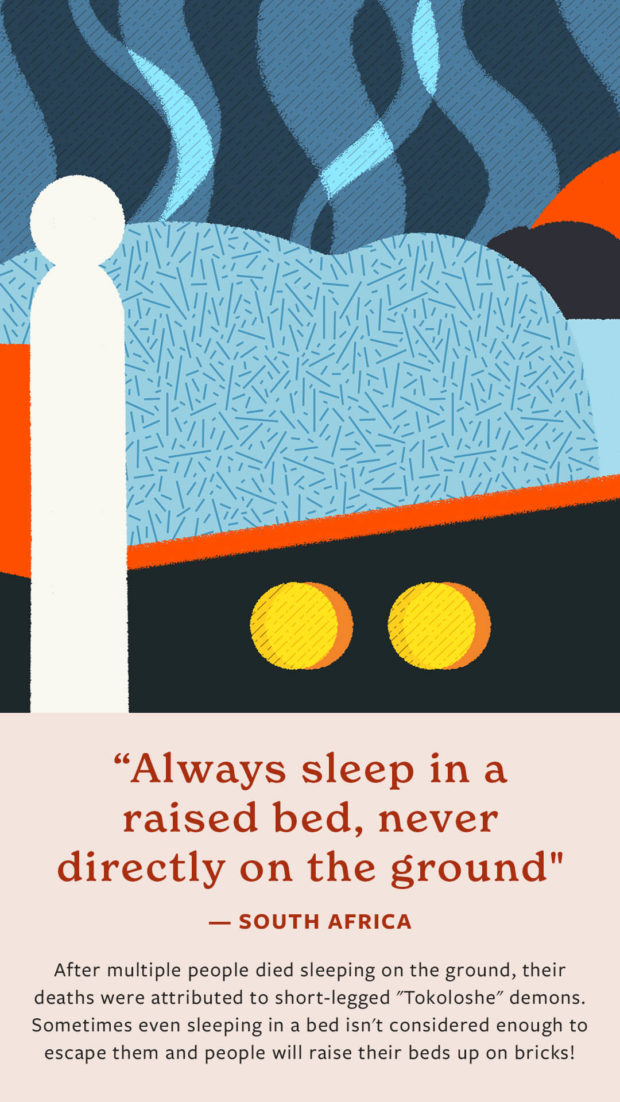As the modern world is such a raging bin fire, it’s hardly surprising that many of us struggle to drift off at night. This makes us all pretty familiar with the irrationality that comes with a sleepless night.
We are far from the first generation to struggle with sleep and the ensuing irrationality around bedtimes, bedrooms and sleeping habits reaches all the way back to the ancient lands of Egypt and Rome. Across the centuries plenty of cultures and civilizations have built up superstition, stories and practices to help keep their bedrooms a sacred, restful, place.
British soft furnishings company, Unbeatable Blinds, hope to give their customers a darkened room and a good night’s sleep. They decided to explore the origins of some of the weird and wonderful bedroom superstitions from all around the world to seek out any tips, explain away unnecessary fear and help us all enjoy a peaceful slumber.
Don’t Leave Indentations in Your Bed
Before the days of pocket springs and memory foam, mattresses were stuffed with straw and feathers. Comfier than a night on the floor, these early mattresses didn’t have the same bounceback-ability as modern ones. When you clambered out every morning, a big, inviting indent was left in your wake.
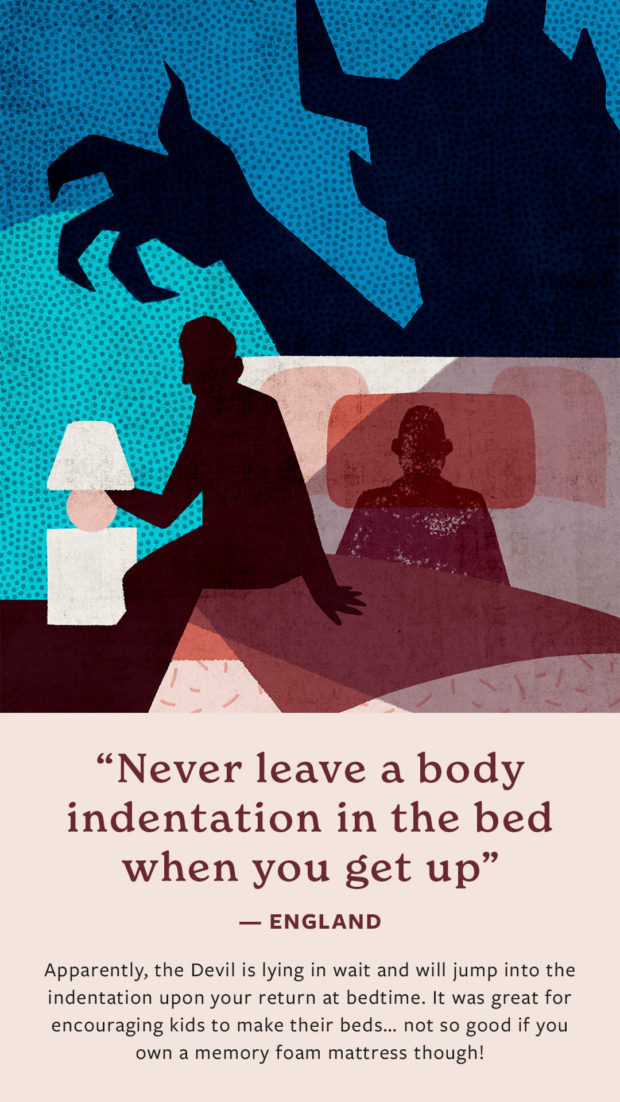
Apparently, these indents gave English people the creeps. They believed that if you didn’t reshape and smooth out the surface of your surface, you’d come back to find the devil waiting for you in the imprint.
No one really knows where this superstition originated, but it was eagerly embraced by parents across the UK. It became an integral tool in convincing their kids to make their beds every morning. Seems no one wants to cuddle up with the devil to sleep – maybe he’s a duvet hog?
Never Leave a Hat on the Bed
There are a couple of potential justifications for the Italian superstition about never leaving a hat on the bed.
The first has strong religious roots, based on the Catholic tradition of the last rites. As a mark of respect, a priest would often remove his hat to perform the rites, and leave it on the bed. It follows that the sight of a hat discarded on the mattress became a bad omen.
The other option stems from a distant belief that evil spirits live in your hair and could be released onto the bed. This may seem fanciful, but is probably the more scientific option – if you consider head lice as evil spirits that is! These villainous critters could get caught in the hat and escape to find a new host when it was placed on the bed.
Never Sleep With Your Head to the North
Some superstitions travel across continents, even the world, when they become attached to religious beliefs. One such superstition stems from Japan.
The belief is so ingrained within Japanese culture that it has its own name, which translates as ‘north pillow’ and gives you a pretty good idea about its nature.
They consider it a terrible omen to sleep with your head pointing north. As with so many traditions, there are a couple of possible roots for this belief. One obvious link is the Buddhist tradition of burying the dead with their heads to the north, which in turn stems from the story of Buddha’s own death.
Another theory has a physical implication, it’s tied to the Earth’s rotation and how our own magnetic energy aligns with the Earth’s magnetic field.
If You Hear an Owl at Night, Terrible News is Coming
The hoot of an owl is something of a ghost story staple, scaring the unsuspecting when it shatters a silent, dark night. It’s so familiar, it makes sense that this superstition stretches all the way back to Ancient Egypt.
In that culture, owls were closely associated with death and mourning. They were regularly featured in art and religious texts and always shown face on, unlike the majority of animals. Their name translated as ‘the one who laments’, and their presence was considered an omen of dreadful things to come.
Even their hoots were thought to be a bad sign. The belief suggests that this sound is the owl warning you of something terrible approaching, be that bad luck, bad health or even death.
Never Chew Gum After Dark
Stretching the superstitions out to the night time in general, this gruesome belief makes too much of an impact to neglect.
A traditional Turkish belief is that you should never chew gum after nightfall because it will turn into human flesh.
No one is quite sure of the basis for this macabre belief and we’re not sure we want to find out either. It’s definitely enough to stop us chewing gum in bed – though is also pretty unadvisable to that on health and safety grounds too.
Never Leave Your Bedroom Window Open on All Saints’ Day
Obviously, All Hallows Eve (Halloween) is a night rife with spooky superstitions but in Spain, these beliefs stretch out across November 1st (or All Saints Day) too.
In Spain, All Saints Day is a public holiday, with the traditions surrounding it taken very seriously. The day itself focuses on honouring the dead, and many Spaniards will take the opportunity to visit their departed loved ones in the cemetery,
But All Saints Day is also thought to be the day on which the dead roam free. This brings a certain amount of jeopardy, and superstitions abound to help you avoid a terrible fate. One such superstition is that you must keep your window shut tight, to stop the marauding spirits from taking their freedom too far, and setting up residence in your bedroom.
Always Sleep With an Axe Under Your Bed
In the pioneer days, it probably felt more like a sensible suggestion than a superstition, to always sleep with an axe close to hand. Bearing in mind the dangerous animals that stalked across the American wilderness, it was probably vital for survival to have a source of protection nearby.
But this suggestion wouldn’t be on this list if there wasn’t something more mystical behind the belief. Sleeping with an axe by your bed was said to bring you good luck, be able to “cut through” a fever and give you sweeter dreams – though that was probably just because you worried less about waking up in the grip of sharp teeth knowing you had it close by.
In American folklore, the masculine associations of an axe meant it was even said that sleeping with one nearby could give you a boy if you were pregnant.
Always Get Out Of Bed On The Same Side You Got In
Most of us have been accused of ‘getting out of the wrong side of the bed’ on a particularly grumpy day, but have you ever wondered which side is actually ‘the right side’?
In Ancient Rome, where this superstition started, ‘the wrong side’ would be whichever side you didn’t get into bed on. If you did get out the opposite side, you spend your day plagued by bad luck.
The Romans actually had a bit of a thing against the left, associating everything left-biassed with evil. The word sinister even comes from the Latin for ‘left’.
This meant that as well as worrying about which side you were getting out, you also need to make sure your right leg emerged first as well. If you did make the mistake of leading with your left, the only way to escape your awful fate was to balance it out by putting your right sock and shoe on first.
Never Sleep on the Ground
Saving the scariest till last, this superstition actually stems from a series of mysterious deaths in Southern Africa.
When a number of people died after sleeping on the ground – with no obvious cause – stories began to swirl about creepy Tokoloshe creatures coming out at night to kill unsuspecting floor sleepers.
Said to be created by a witch doctor in order to harm his enemies, the Tokoloshe is a small hairy creature that will bite off your toes if they catch them on the floor. This led to raised beds, with some people even popping their beds upon bricks to make them even higher.
A modern understanding of gases gives a far less supernatural explanation for these not-so-spooky deaths. At this time it was common to sleep curled close to a campfire in an attempt to keep warm. With the beds and fires located in enclosed rondavels, this would lead to a build-up of carbon monoxide. With no colour, smell or taste at all, carbon monoxide leaks are still known to kill innocent sleepers today, making it a much more formidable murderer than the Tokoloshe.

